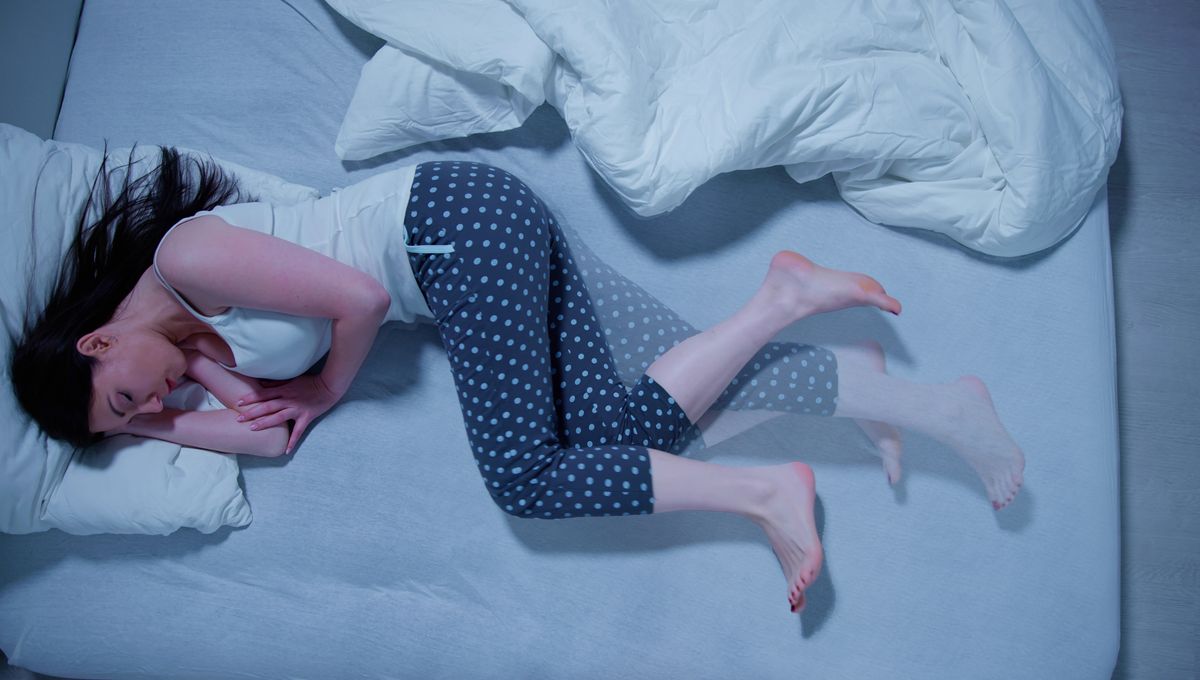
A new study of over 9,900 people with restless leg syndrome (RLS) has suggested that the condition appears to increase the risk of developing Parkinson’s disease (PD).
RLS is a neurological condition characterized by an irresistible urge to move the legs, often spurred on uncomfortable sensations in the legs when at rest, leg twitching during sleep, and relief when you start moving.
PD is also neurological, but it’s degenerative, meaning that it gets worse as time goes on. It shows itself in a number of different ways that can vary from person to person, with symptoms potentially including tremors, rigid muscles, slower movement, poor posture and balance, speech changes, and loss of automatic movements, like blinking.
Previous research has indicated that there may be a link between the two conditions, and that it might have something to do with what’s known as dopaminergic (meaning it’s related to dopamine) pathways in the brain.
Popularly known as the “pleasure chemical”, dopamine functions as a neurotransmitter, a molecule that acts as a chemical messenger sent by a neuron to another cell (such as another neuron). In PD, the neurons that produce dopamine die, leading to a reduction in dopamine and the symptoms mentioned above.
The team set out to find further evidence of connection between RLS and PD, and whether or not it involved dopaminergic pathways. To do so, they analyzed the data of 9,919 people diagnosed with RLS, collected as part of the Korean National Health Insurance Service Sample Cohort between 2002 to 2019, comparing them to a control group of people without RLS.
They discovered that while the incidence of PD in the control group was 1 percent, it was 1.6 percent in the patients with RLS, which the team suggested backs up the idea that there’s an association between RLS and an increased risk of developing PD.
Not everyone is convinced by the findings. In an editorial accompanying the new study, Southeast Parkinson’s Disease Research, Education and Clinical Center neurologist Mark Baron, MD, wrote that “alternative explanations […] must be strongly considered.”
As the researchers also acknowledged, Baron pointed to the fact that diagnoses of RLS and PD in the patients were made by generalist, not specialist doctors. “Thus, the extent of misdiagnoses of both Parkinson’s disease and RLS cannot be readily deduced, but, no doubt, an appreciable portion of these diagnoses were inaccurate,” he wrote, suggesting that a common symptom of PD in which patients physically act out their dreams may have easily been mistaken for the periodic leg movements seen during sleep in people with RLS.
The team also proposed that a connection between the two conditions might not have something to do with dopamine signaling, as previously hypothesized. They reached this conclusion after observing that RLS patients who received dopamine agonists – drugs that stimulate dopamine production and are used in both RLS and PD treatment – showed a longer time to PD diagnosis compared to those who didn’t.
Again, both the authors and Baron caution that there may be other explanations for what the researchers found. It’s possible, for example, that medication given for RLS may simply have been masking PD symptoms, which would also delay the time until diagnosis.
The researchers concluded that the study “was not able to confirm a causal relationship or shared dopaminergic pathway dysfunction between RLS and PD.” To address the problems both they and Baron identified, and to find our way to a clearer answer as to whether there’s a link between RLS and PD, will need even more research in the future.
The study is published in JAMA Network Open.
Source Link: Restless Leg Syndrome Might Increase Someone’s Risk Of Parkinson’s Disease